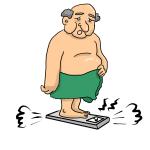The medication causing all the talk is semaglutide (Oh, you mean Ozempic or Rybelsus, both trade names) that are approved for Type II diabetes because they increase insulin production (the within) and thereby improve glucose metabolism.
obesity
To answer that question, researchers reviewed the 14 different government strategies directed at obesity in the UK since 1991. Overall, each strategy was associated with a median of 35 policies.
The table seen below this paragraph was taken from a poster [1] at the European and International Congress on Obesity, which shows the number of individ
There are several ways to rearrange the stomach to caused weight reduction.
Breakfast like a king, lunch like a prince and dine like a pauper is an old nutritional adage that at first glance would seemingly be supported by a recent study published in the Endocrine Society's
Obesity. It's a big fat problem. And, as with all big fat problems, somebody else is to blame.
Michelle Obama’s memoir, Becoming, sold 10 million copies in just six months. Random House Chief Executive said, “It could be the biggest selling autobiography ever.” In addition to people buying her book, they are shelling ou
The Lancet’s year-long reports on non-communicable diseases continue with a long piece on obesity, undernutrition and climate change as synergistic drivers of poor health. Before the critique, let's start with a summary.
Gestational diabetes (GD) is the development of diabetes during pregnancy. For those afflicted, it is a significant problem for these women and the children they carry.
A recent study in the Journal of Experimental Biology looked at food choices by dogs and cats [1] when foods were equally palatable, a term we will return to momentarily.












